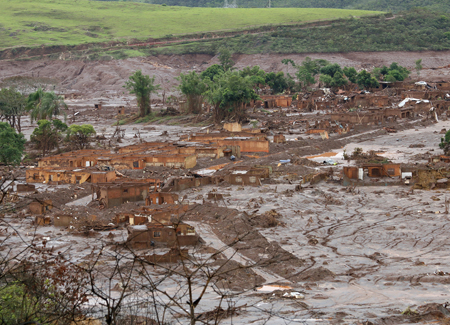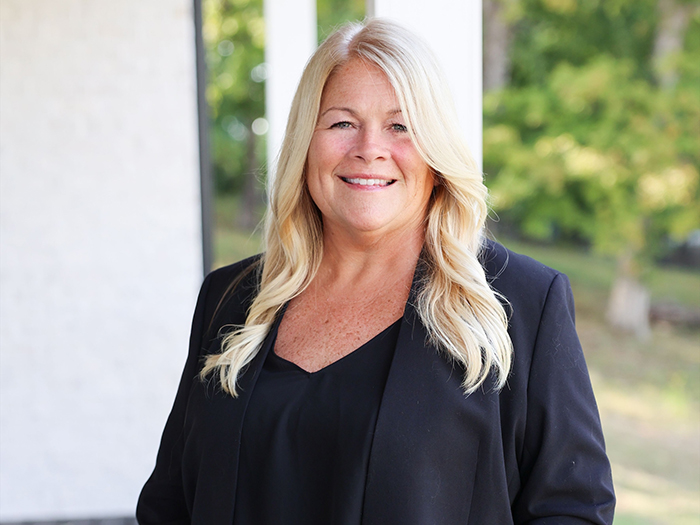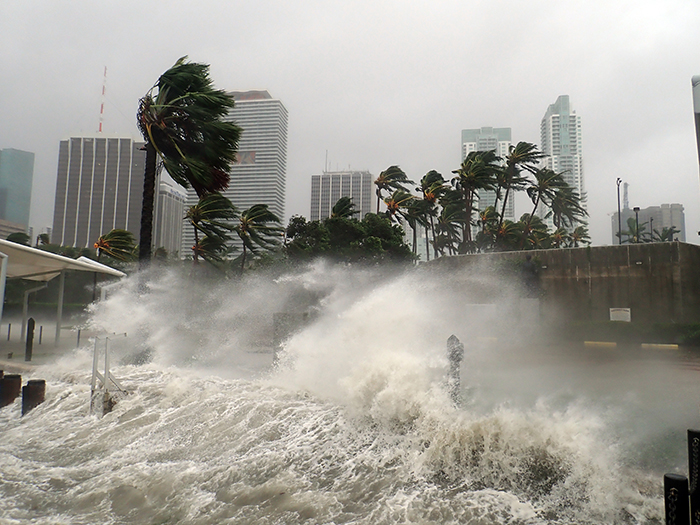Inadequate Risk Management
Risk Focus on Brazil

In 2015, two high-profile cases in Latin America’s largest economy highlighted some of the biggest risks faced by American companies — as well as the risk management and compliance shortcomings of the business community in Brazil.
The development of risk management in Brazil is below average even by Latin American standards, which are not that high to begin with, according to a study commissioned by RIMS and Marsh.
Aggravating the potential exposures is the inadequacy of insurance coverage, especially for environmental liability.
“In Brazil, for cultural reasons, companies do not have the habit of purchasing environmental insurance.” — Alexandre Jardim, head of P&C, Aon, Brazil
In addition, bribery and corruption are widespread in Brazil, leading to potential prosecution risk in the United States under the Foreign Corrupt Practices Act (FCPA).
Environmental Disaster
The Nov. 5 bursting of a waste dam owned by Samarco, a mining ore producer, spilled millions of tons of industrial mud in a river, killing at least 17 people and causing what is believed to be Brazil’s largest environmental disaster ever.
The environmental and human tragedy associated with the Samarco dam revealed a lack of efficient crisis and risk management plans by a company that had been seen as a standard-setter in mining practices.
It also illustrated the extent to which shareholders are exposed to environmental and civil liability in the country.
The causes of the accident are still under investigation, but experts have pointed to a number of apparent flaws that could have increased the possibility of accidents at the Fundão dam, which burst in early November.
“All the information that has been in the news indicate that risk management systems failed to prevent a large scale disaster,” said Robert Kochen, CEO of GeoCompany, an engineering consultancy.
If his view is confirmed by the investigation, the case throws into question the risk management practices of the entire mining sector in Brazil, as Fundão was seen as one of the safest among several hundred dams currently in the country.
“There is no doubt that Samarco was negligent and skipped its responsibilities,” said Sandra Cureau, a deputy federal attorney, who is heading the official investigation into the disaster.
The company was particularly criticized for not having an emergency plan in place to warn neighboring communities about accidents.
One area of the nearby town of Mariana was completely devastated by the mud spill, and in addition to the 17 dead, two people are still missing, and hundreds of families lost their homes.
The mud spillage polluted more than 400 miles of the Rio Doce riverbed, reaching a natural reserve in the Atlantic Ocean, according to IBAMA, Brazil’s environmental agency.
Samarco’s executives said that its emergency plans and risk management processes met regulatory demands, but prosecutors and the media have expressed doubt.

The breaking of the Fundão dam caused a torrent of mud that flooded the Bento Rodrigues district of Mariana, Minas Gerais, Brazil. Photo by Senado Federal
Samarco is co-owned by Australia’s BHP Billiton and Brazil’s Vale, and both mining giants risk having to pay billions of dollars in fines to the government and compensation to the victims of the accident.
In addition, their shares were heavily hit after the tragedy.
Vale has been criticized by the local media about its handling of the accident, especially after it emerged that the company used the Fundão dam to deposit some of its own industrial waste.
Vale and BHP Billiton have denied any liability for the disaster, but they may face up to $5.3 billion in fines and indemnifications for both environmental and civil liabilities, if Samarco goes bankrupt.
The incident also revealed the inadequacy of insurance programs purchased by many Brazilian companies.
Vale executives have stressed that Samarco’s liability program will cover only a small fraction of the expected economic losses. The company reportedly had no environmental insurance in place, a common situation among Brazilian companies, despite the high levels of exposure to the risk.
Even before the accident, risk professionals had warned that the Brazilian authorities were becoming more rigorous when it comes to environmental liability by companies.
“In Brazil, for cultural reasons, companies do not have the habit of purchasing environmental insurance,” said Alexandre Jardim, the head of P&C at Aon in Brazil.
As a result of the accident, he said, insurers will become more selective with clients – which has the potential to affect U.S. companies seeking coverage — although it will not necessarily affect environmental liability rates in Brazil.
The accident and its aftermath should act as a cautionary tale for U.S. companies seeking business partners or to establish operations in the region.
For her part, Karla Costa, a risk management expert at Deloitte in Rio de Janeiro, said that the mining sector will become the target of new, tighter licensing rules. Brazil’s Lower House is already discussing the imposition of mandatory insurance coverages for dams.
The accident and its aftermath should act as a cautionary tale for U.S. companies seeking business partners or to establish operations in the region.
Bribery Scandal
The second scandal that has potential to affect U.S. multinationals is the long-running bribery investigation involving state-owned oil giant Petrobras, public officials, political parties and some of Brazil’s largest business groups.
If the Fundão tragedy put the failures of risk management in Brazil under the limelight, the Petrobras scandal has revealed the extent to which corporate compliance programs lack credibility in the country.
The long-running bribery investigation known as Operation Car Wash has resulted in the imprisonment of dozens of politicians, officials and business leaders, who were accused of paying bribes for the awarding of contracts linked to Brazil’s large offshore oil reserves and other activities by Petrobras.
Losses suffered by the oil giant due to the criminal activities have been estimated at several billions of dollars.
Many of the companies linked to the scandal claimed to have developed thorough compliance programs in recent years.
Although bribery and corruption are widespread in Brazil’s business community, especially in dealings with omnipresent government entities, the extent of involvement by some of the country’s most respected companies has shocked many.
Executives from Brazilian-based multinational construction firms such as Andrade Gutierrez, OAS, Queiroz Galvão and Mendes Júnior have already been sentenced to jail. The CEO and heir of Oderbrecht, one of the country’s most recognizable international brands, is under arrest.
The scandal has also claimed the scalp of Andres Estevez, the CEO of BTG Pactual, a fast growing investment bank with activities in Latin America and Europe. The bank is now facing a flight of customers.
Many of the companies linked to the scandal claimed to have developed thorough compliance programs in recent years, but the widespread involvement of top corporate executives indicates that the efficiency of such programs in Brazil is questionable.
More worryingly for American companies, though, is that several foreign firms have found their brands dragged into the scandal, including Houston-based Vantage Drilling Co., Italy’s Saipem, the Netherlands’ SBM Offshore and others, which have denied involvement or are cooperating with the investigations.
Brazilian prosecutors, a number of whom are U.S.-trained, are reportedly collaborating with their American peers, which could give rise to further prosecution in America under the FCPA. They argue that many of the bribes were paid via the American banking system.
The purchase of an oil refinery in Pasadena, Texas, by Petrobras is one of the main targets of the investigation.
Future Outlook
Brazil boasts a large economy and, once it leaves its current economic malaise behind, it should offer growth opportunities for American groups.
The devaluation of the local currency, the real, coupled with the economic woes faced by many companies, mean that attractive M&A targets should be found in the country in the near future.
But collaboration with Brazilian companies demands caution, especially now that the courts and the media appear to be fully engaged in punishing bad business practices in the country.
U.S.-based companies may find out that compliance and risk management practices at Brazilian companies, when they do exist, are not robust enough to keep threats at bay.
“There are failures in enterprise risk management programs in the region,” said Rodrigo Fajardo, the managing director of Marsh Latin America.
The good news is that companies appear to waking up to risk management and compliance, according to experts.
“The crisis, in this sense, has been a positive,” said Cristiane Alves França, the president of ABGR, Brazil’s risk management association, at the association’s bi-annual conference in late October in São Paulo.
“Today, there is a higher perception of risks among companies.”












